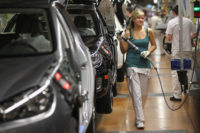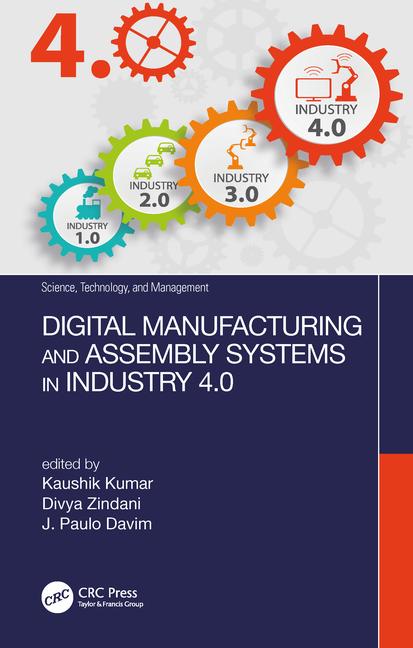CHATTANOOGA, TN—Volkswagen of America has begun production of the all-electric ID.4 compact SUV at its assembly plant here. It’s the company’s first electric vehicle assembled in the United States.
The ID.4 is VW’s most popular all-electric model, with 190,000 units delivered to customers globally since its launch in 2021. Volkswagen aims to ramp up ID.4 assembly in Chattanooga to 7,000 vehicles per month later this year, with the goal to further increase output through 2023. Consumers can expect vehicles to be delivered as early as October 2022.
Initially, the American-assembled ID.4 will be available with either rear-wheel or all-wheel drive and an 82 kilowatt-hour (kWh) battery. In addition, a rear-wheel-drive version with a 62-kWh battery and a lower pricetag will go into production later in 2022.
The start of production is the result of Volkswagen’s $800 million investment into the electrification of its Chattanooga factory, including dedicated facilities for vehicle and battery pack assembly. The factory in Tennessee is now the sixth global site to produce vehicles for Volkswagen’s electric line-up.
The American-assembled ID.4 will be mainly sourced in the North American region, particularly the United States. The vehicle includes materials and components assembled in 11 U.S. states, from steel in Alabama and Ohio, to interior parts in Indiana and South Carolina, and electronics components in Kentucky and North Carolina. The EV battery will be supplied by SK Innovation located in Georgia.
As part of the preparation to launch the ID.4, suppliers have invested $2.7 billion throughout the North American continent, including the battery partnership with SK Innovation. More than 3,000 U.S. jobs on supplier side have been created.
Volkswagen Chattanooga employs more than 4,000 people, and is actively hiring more than 1,000 new production team members through 2022, to help meet high customer demand for the ID.4 and Atlas SUV family.
To prepare for the EV transition, the factory has organized more than 75,000 hours of workforce training on battery-powered vehicle and high-voltage systems.
Volkswagen aims for 55 percent of U.S. sales to be fully electric by 2030.







